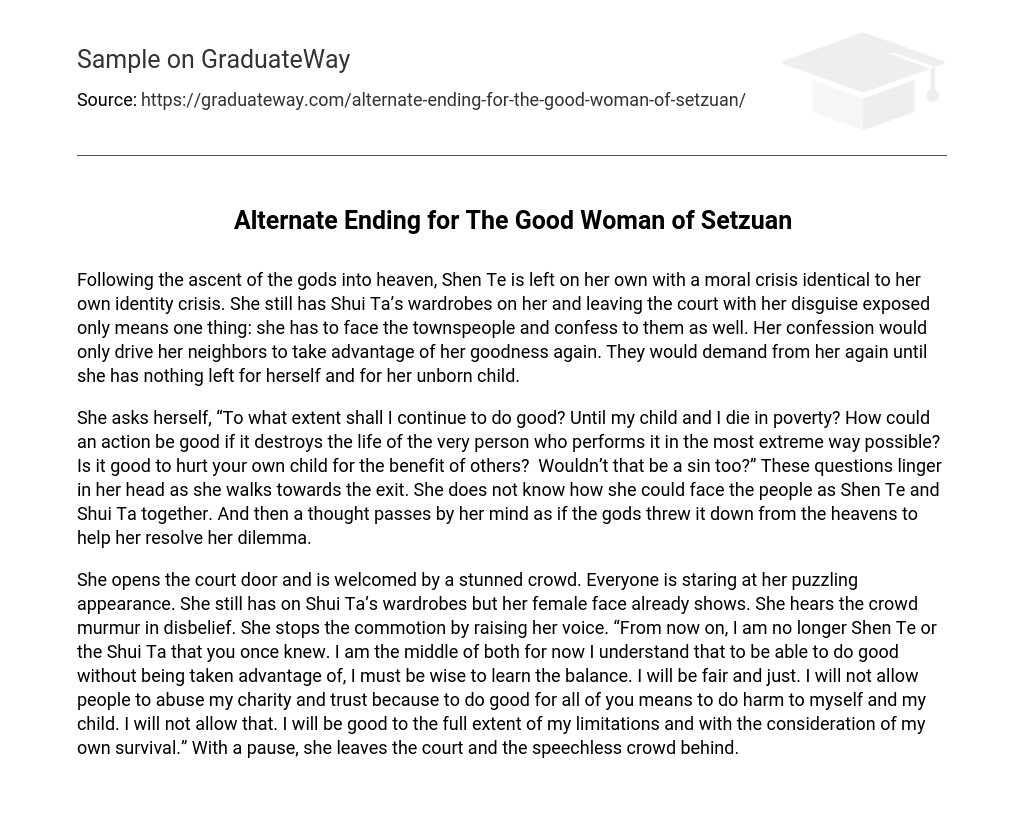Following the ascent of the gods into heaven, Shen Te is left on her own with a moral crisis identical to her own identity crisis. She still has Shui Ta’s wardrobes on her and leaving the court with her disguise exposed only means one thing: she has to face the townspeople and confess to them as well. Her confession would only drive her neighbors to take advantage of her goodness again. They would demand from her again until she has nothing left for herself and for her unborn child.
She asks herself, “To what extent shall I continue to do good? Until my child and I die in poverty? How could an action be good if it destroys the life of the very person who performs it in the most extreme way possible? Is it good to hurt your own child for the benefit of others? Wouldn’t that be a sin too?” These questions linger in her head as she walks towards the exit. She does not know how she could face the people as Shen Te and Shui Ta together. And then a thought passes by her mind as if the gods threw it down from the heavens to help her resolve her dilemma.
She opens the court door and is welcomed by a stunned crowd. Everyone is staring at her puzzling appearance. She still has on Shui Ta’s wardrobes but her female face already shows. She hears the crowd murmur in disbelief. She stops the commotion by raising her voice. “From now on, I am no longer Shen Te or the Shui Ta that you once knew. I am the middle of both for now I understand that to be able to do good without being taken advantage of, I must be wise to learn the balance. I will be fair and just. I will not allow people to abuse my charity and trust because to do good for all of you means to do harm to myself and my child. I will not allow that. I will be good to the full extent of my limitations and with the consideration of my own survival.” With a pause, she leaves the court and the speechless crowd behind.





